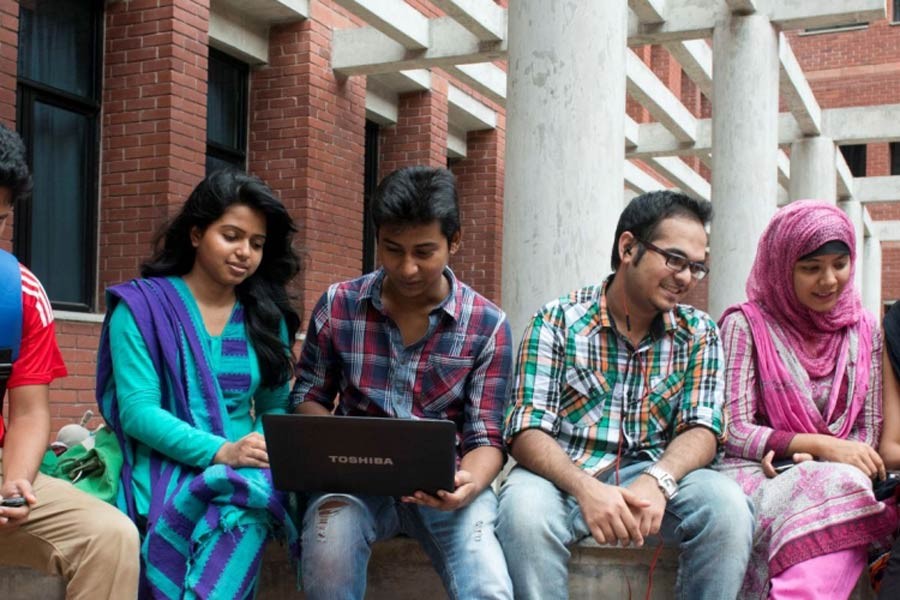Recently, there has been much talk about empowerment, whether female empowerment, worker empowerment, or youth empowerment. But the essential question is, what does empowerment mean? And how it impacts young people.

Before analysing the significance of youth empowerment in the twenty-first century, it is vital to define the term. Therefore, although empowerment is a vast issue, I will focus on the essential notion and limit my discussion to the six commonly known components of youth empowerment,

What is Youth Empowerment?
Youth empowerment is a process in which individuals gain the ability and authority to make informed decisions and implement change in their own lives and the lives of others. It is a means of inspiring young people to accomplish great things for themselves and significantly impact their society.
Or
In other words, youth empowerment is the process by which individuals obtain the knowledge, skills, and authority necessary to take charge of their own destiny and the destiny of others around them. Therefore, an excellent way to inspire the next generation of leaders and changemakers is through this programme.
As youths, you are at the centre of absolute strength. You think big, hope for the best and envision a better tomorrow, making continuous efforts to turn your dreams into reality.
In terms of age, a definition is deferred by country and organisations. For example, United Nations defines a person as a youth who belongs to the 15-25 years of age limit. But the Government of Bangladesh defines the population as a youth in the age group of 18-35 in its National Youth Policy- 2003 (DYD 2009, 30).
The six common components of youth empowerment are; psychological, community, organisational, economic, social and cultural.
What is psychological empowerment?
Psychological empowerment is the intrinsic task’s driving force. It includes four personal orientations: competence, meaning, autonomy, and impact. It also gives them a way to think about their work function.
What does community empowerment mean?
Community empowerment is giving communities more authority over their own lives. The term “community” refers to groups of individuals who may or may not be physically related but who share common interests, concerns, or identities.
What is a youth empowerment organisation?
Youth organisations provide leadership possibilities that young people might not otherwise have. For instance, young people active in organisations can obtain safety and health advice from their peers or adults they respect. They then share this information with other adolescents.
What is the meaning of economic empowerment?
Economic autonomy is the capacity to make and implement decisions about managing and distributing financial resources.
It enables households, for instance, to make their own choices regarding investments in health and education and take risks to improve their income. There is also evidence that economic empowerment can enhance the engagement of vulnerable groups in decision-making.
What is social empowerment?
Social Empowerment implies that all segments of Indian society have equal control over their life, are able to make significant decisions, and have equal access to opportunities. Without empowering all segments of society equally, a nation’s growth trajectory will never be favourable.
How does culture empower youth?
Culture has the power to transform entire societies, strengthen local communities and forge a sense of identity and belonging for people of all ages. Culture plays an essential role in promoting sustainable social and economic development for future generations as a vector for youth development and civic engagement.
Conclusion:
Youth is a country’s backbone, as its proper development largely depends on its integrated development. Bangladesh’s development is also contingent on the appropriate utilisation of its youth, who account for approximately one-third of the total population (aged 15-35 years) and 37.7% of the entire civilian labour force (Department of Youth Development, DYD 2009, 30). (Huq 2003, 9).
However, the country’s youth face a variety of socio-economic challenges, including unemployment, underemployment, illiteracy, a lack of technical education, skill, and training, and a financial crisis for self-employment as a result of widespread poverty and the absence of an informative plan (Akhter and Sultana 1993 and Sarker 2008).
Our educational systems have not adequately developed the necessary harmony between economic development and human resources development programmes. As a result, many educated young people in Bangladesh were unemployed (Sarker 2008). Unfortunately, this level of unemployment persists in our country (24.5% on a weekly hourly basis) (GOB 2008, 67).
Therefore, while the ultimate success of economic and social development programmes is contingent upon the active participation of an educated, trained, persevering, organised, disciplined, and skilled youth force in the development process, it is regrettable that Bangladesh’s youth have been unable to acquire these characteristics due to the country’s current socio-economic conditions. As a result, they cannot participate in decision-making regarding their development work and self-employment.
Keeping the next generation from breaking and speeding up development must be included in the main development activities. With this in mind, the Government of Bangladesh (GOB) has created a youth policy that encourages youth involvement in all stages of development. Government organisations (GOs) and non-government organisations (NGOs) do different things, like train people, give them small loans, and help in other ways (like monitoring, supervision, etc.).
The main point of these activities is to give young people more economical and social power. This paper tries to figure out how well these programmes work and where they fall short when helping young people and ensuring the country has long-term growth. It also suggests some ways to improve the effectiveness of these programmes in assisting young people in growing and developing.

